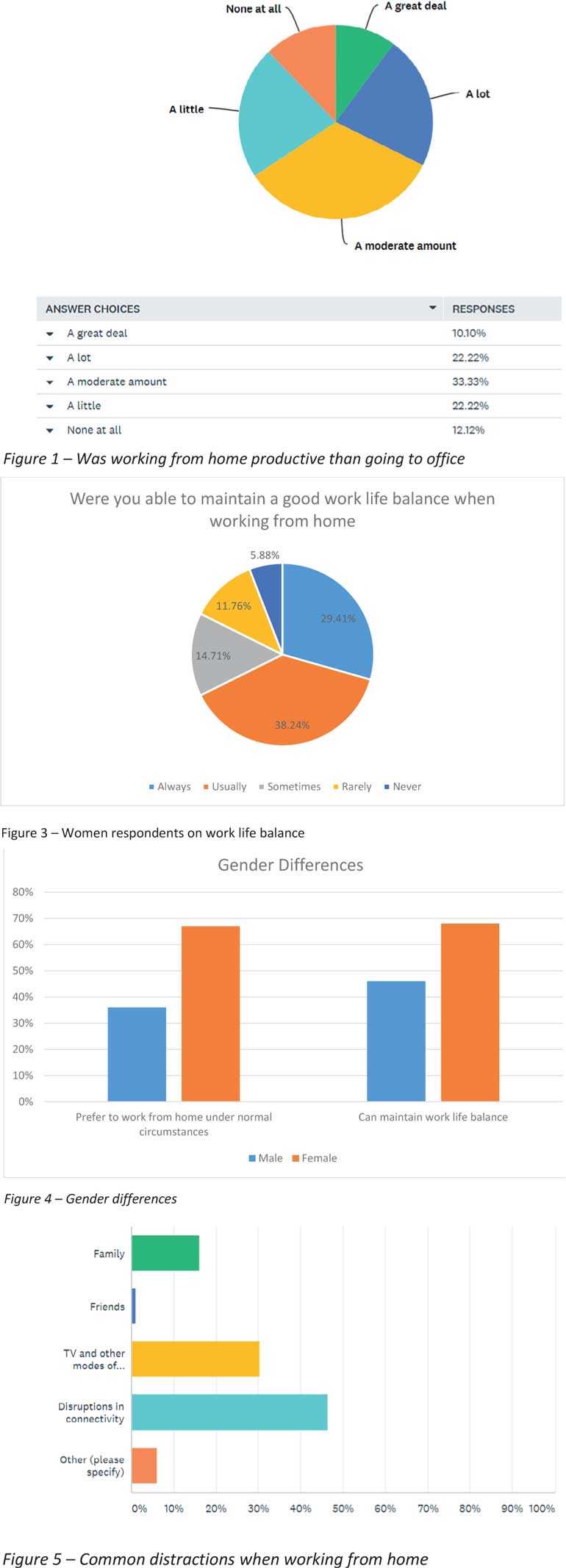Monday Feb 23, 2026
Monday Feb 23, 2026
Thursday, 30 April 2020 00:00 - - {{hitsCtrl.values.hits}}

Covid-19 shows how vulnerable we remain to pandemics, which will be quite common in the future. Even though a vaccine is found, similar self-replicating pathogens will become a major threat to humanity. Therefore practicing working from home even under normal circumstances at least few days a week will bring in the self-discipline and the mindset shift required to work from home during crisis  situations.
situations.
There is much debate on how productive working from home is, and how suitable it is in a Sri Lankan context. How will different generations look at it, can we resort to working from home even under normal circumstances and what are the common distractions people face when working from home are few areas I intend to cover in this article.
Looking at the last 30 days, I have personally managed to stick to a routine and work productively while giving attention to my family and fulfilling the parental responsibilities. Initially it was difficult. As Aristotle once said “man is by nature a social animal”; we depend on diverse social interactions. However it’s important to progress from denial to acceptance as remote working will undoubtedly be the new norm.
Working from home also gives many benefits to employers. Telecommuting can reduce absenteeism, increase productivity, and save money. You can hire the best of the best while not limiting yourself by geographical restrictions and engage in project based recruitment based on demand. This will reduce the long term commitment by both employer and employee which can also cause certain challenges in keeping people motivated.
The following article was done based on a survey conducted among a cross section of the working population in Sri Lanka representing different generations. Different generations and genders have different sentiments on working from home and it is interesting to understand the underlying reasons behind those sentiments.
How productive is working from home? Millennials displaying strong sentiments
About 32% of the respondents said it’s more productive to work from home than going to office. But this percentage was higher within the Millennials. 40% of the Millennials and 50% of female respondents confirmed that working from home is more productive.
Why are Millennials so passionate about flexible work? Compared to other generations, Millennials are the biggest proponents for telecommuting, and would desire the option to work remotely, even if it’s just one to two days a week. A recent Deloitte survey revealed that Millennials consider work life balance when considering a job opportunity. Drawing a big pay check, a lucrative career or being busy, is not how they perceive success. They also want fulfilling work, efficiency, time to pursue their hobbies and they know that achieving all this is possible with the help of modern technology.
A total of 53% of the total respondents and 60% of the Millennials said they were able to maintain a healthy work life balance by working from home. Therefore it is evident that most Millennials favour working from home and consider that it is more productive in the long run. Let’s try and understand these different opinions of different generations.
The Baby Boomers and the generation X believed in a stable and progressing career with high specialisation in a functional role. But the Millennial is multi-disciplinary in nature and is not expected to remain loyal to a workplace. They are motivated by different challenges thrown at them and will easily get bored if they’re limited to a functional role. Therefore future organisation structures should be agile and collaborative instead of being driven by silos and divisions.
Business leaders will have to use crowd sourcing and learn how to collaborate teams which consist of freelancers, robots and full time staff. In this perspective, working from home will be a routine that futuristic organisations will have to adopt to.
Urbanisation and traffic has made our daily commute to work appalling with average commute time increasing every year. This can be another reason why many people believe that working from home is more productive than commuting to office. In-depth interviews with few respondents revealed that the lack of unproductive meetings, corridor talk and gossip made working from home productive and less distracting.
Women support work from home
The role of women in the society also has an impact on working women who try to balance their job roles with their family commitments. Eastern civilisations always gave priority to the role played by women in the family and the added expectations in the home front makes work life balance a challenge.
The role of women in the urban and rural workforce has expanded exponentially in recent decades. Some are capable of managing their work and home flawlessly while some decide to bid farewell to their career and stay home. With many work from home options unfolding in the job market, aspiring women can revive their career right from home.
An overwhelming 67% of working women preferred to work from home even under normal circumstances and 68% said they can maintain a good work life balance when working from home. However when the same question was asked from the male respondent’s only 36% preferred to work from home even under normal circumstances and only 46% said they can maintain a good work life balance.
A total of 80% of women stated that their family was understanding and supportive towards them when working from home and about 58% believed that their organisations will encourage working from home in the future. The differences in gender responses are highlighted on figure 4.
Sceptical about the future
However the majority was sceptical whether their organisations will encourage working from home in the future. 23% was not sure where as 34% thought that their organisations will not encourage working from home at all. Only 34% of the male respondents thought that organisations will encourage working from home in the future. This shows that even respondents who thought working from home is productive are doubtful about their organisations implementing work from home in the long run.
When asked about the common distraction faced when working from home, close to 50% said disruptions in connectivity is a common issue. TV and other modes of communication was the second distraction according to the survey. This indicates that many Sri Lankans encounter disruptions in connectivity which can be detrimental to remote working.
Mindset change
The growing popularity of working from home was made possible by the advancements of technology, however, the emergence of the cloud and cloud computing made it entirely possible. With the cloud, employees are not just able to work from home, but from wherever is most convenient for them. This could be a local coffee shop, library, or anywhere with a secure internet connection. However for this to be successful a mindset change is imperative.
The widening trust gap between generations and concerns of work ethics have been raised by managers who oppose remote working solutions. As highlighted in the article this can be due to the difference of opinions between generations and can only be resolved through a transparent mechanism to measure performance in remote working. When a company makes the decision to support employees who want to work remotely or establish entire remote teams, it’s important they leverage software tools that make communication, collaboration, and transparency a breeze.
Internet of Things have enabled us to track and measure activities using multiple devices and crowd sourcing software can be used to measure progress made by project teams more effectively. Using the right technology and more importantly trusting your team to achieve the business purpose will undoubtedly help embrace a remote working culture in the organisation.
(The author is a chartered marketer, a visiting lecturer in marketing, management and transformational growth. He is currently employed as Deputy General Manager – Group Business Support and Planning at Hayleys Advantis Ltd.)